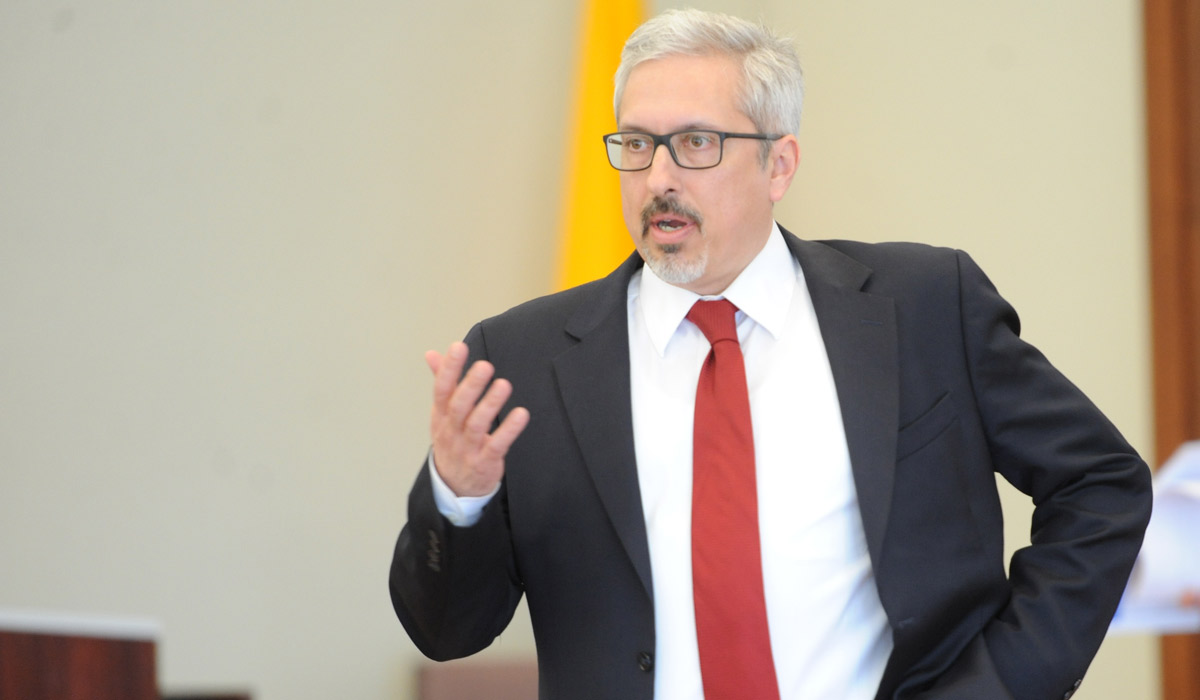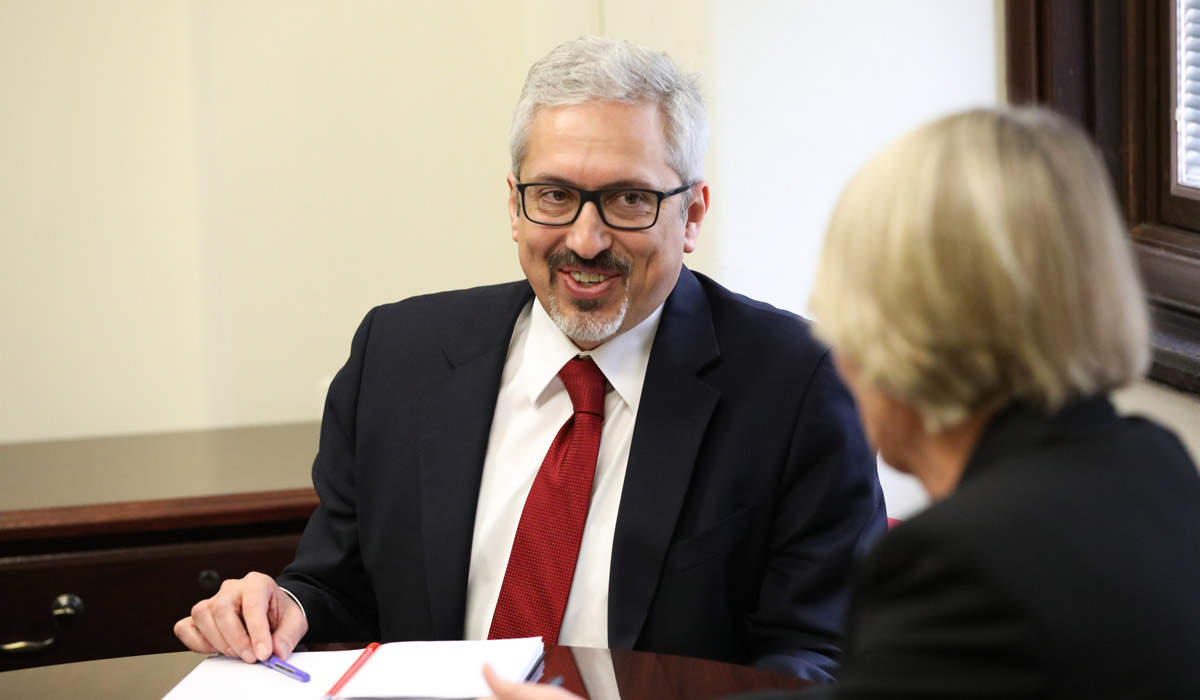

Aaron Dominguez, dean of the school of Arts and Sciences, is a particle physicist and a devout Catholic. He says there aren’t a huge number of scientists out there who claim both of these things, but there is one sure-fire way to find out.
"Ash Wednesday is the day you can tell. You go about your daily business at the laboratory, but then at lunch time you go to Mass and see everyone who is Catholic all afternoon,” Dominguez chuckled. “And then you start going to Mass together. So it’s not like we don’t exist. I’m just willing to talk about it [in] public,” he said.
Dominguez’s faith is part of what inspires him to study the origins of the universe in his own research in experimental high-energy physics.

“Physics just has some of the most powerful questions: understanding what the world is really made of and how it works at the most basic level,” said Dominguez. “It is really true, scientifically true, that the universe was created out of nothing. It’s also been revealed to us through faith that it was created by a Creator … so for me, there is this natural connection between the curiosity of understanding the basics of what the world is made of, the rules of how it was put together, and understanding what it is that God has done and what our place is in it.”
Dominguez works in cooperation with the CERN laboratory in Geneva. He currently leads a team of researchers from nine universities in the construction of the next generation of particle detectors. Eventually, the innermost detector of the Large Hadron Collider in Geneva, the particle accelerator that recreates the conditions of the universe soon after the Big Bang, will be built in Hannan Hall in a special laboratory under construction for Dominguez.
“I’m excited that now The Catholic University of America is a new collaborating member institution at CERN,” Dominguez said.
Dominguez wasn’t actually looking for a new job when he found the posting for the dean of arts and sciences at Catholic University. He was happy in his previous position and felt like his family had a strong foothold in their local community.
“I think it was the Holy Spirit who led me here,” said Dominguez. He had been doing some personal research on the way major Catholic universities in the United States conduct research, specifically bioethical research that had profound moral implications. He wondered what guidelines and parameters Catholic universities established for themselves. Dominguez’s findings surprised him.
“A truly Catholic research university: that’s what The Catholic University of America is,” he said. “A serious, global research university that takes its commitment to the Catholic Church to heart and doesn’t just treat it as part of our history. A university that truly makes the connection between what we do in creating knowledge and how we serve God, serve the Church, and serve each other, “ he said.
Dominguez thinks that Catholic University’s strong intellectual tradition and its Washington, D.C., location give the institution leverage that it would otherwise be difficult and costly to obtain. He believes that it was wise of the American bishops to place their national university in the heart of our nation’s capital in order to engage and to lead.
“We are a university that is a light that draws in people, draws in researchers, faculty, students, people who want to come to or contribute to a place like this. I think we can be the very best Catholic research university.”